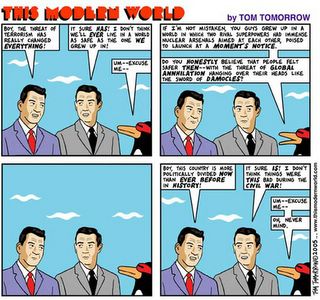The Seattle Times: Nation & World: In survey, Puerto Ricans say they're happiest
The Seattle Times: Nation & World: In survey, Puerto Ricans say they're happiest
. . . Never mind the low income or the high murder rate, the double-digit unemployment or the troubled public schools. Puerto Ricans say the emphasis on extended family, an easy warmth even among strangers and a readiness to celebrate anything, anywhere, at any time all contribute to a high quality of life here.
'There are over 500 festivals in Puerto Rico, and there are only 365 days in a year,' said Francisco Cavo, a U.S. Army medic at Fort Buchanan, near San Juan. 'That's a lot of fun on the schedule.'
The United States ranked 15th among the 82 societies in the study by the Stockholm-based World Values Survey, which was based on interviews with 120,000 people representing 85 percent of the global population. That put the United States ahead of Britain, Germany, France, Japan, China and Russia, but behind Mexico, Colombia, Venezuela, Ireland, the Netherlands and Canada.
The subjective well-being rankings are one part of an ongoing study of social, cultural and political change by a global network of social scientists.
The rankings are based on responses to questions about happiness and life satisfaction. Generally, the wealthiest nations tend . . .
World Values Survey
http://www.worldvaluessurvey.org/





